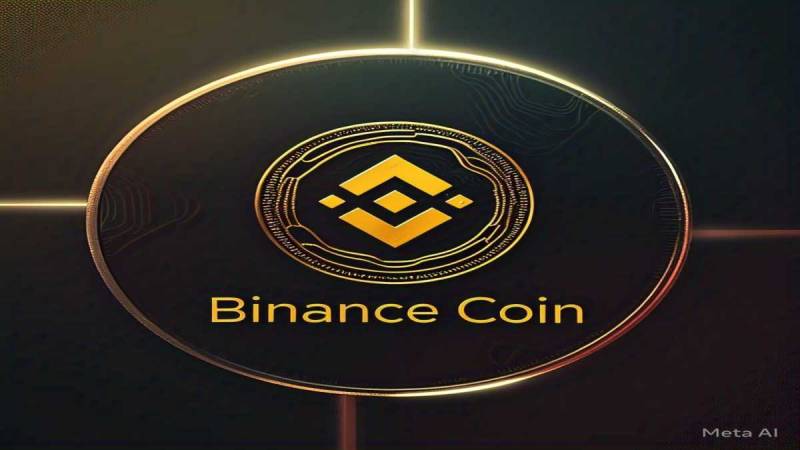 |
|
 |
|
 |
|
 |
|
 |
|
 |
|
 |
|
 |
|
 |
|
 |
|
 |
|
 |
|
 |
|
 |
|
 |
|
推動世界領導人拯救過熱星球的活動家和專家發現,即使在模擬世界中,這也不是那麼容易。

Activists and experts who are urging world leaders to save an overheating planet learned it’s not so easy, even in a simulated world.
敦促世界領導人拯救過熱星球的活動家和專家發現,即使在模擬世界中,這也不是那麼容易。
The Associated Press brought the board game Daybreak to the United Nations climate negotiations in Baku, Azerbaijan. Experts from three countries were asked to play the game, which involves players working together to curb climate change, caused by the release of greenhouse gas emissions when fuels like gasoline, natural gas and coal are burned. The goal of the game is to prevent the world from getting too hot or overrun by devastating extreme weather events.
美聯社將棋盤遊戲《破曉》帶到了阿塞拜疆巴庫的聯合國氣候談判中。來自三個國家的專家被要求玩這個遊戲,玩家需要共同努力遏制氣候變化,氣候變遷是由於汽油、天然氣和煤炭等燃料燃燒時釋放溫室氣體造成的。遊戲的目標是防止世界變得太熱或被毀滅性的極端天氣事件淹沒。
Three times activists, analysts and reporters took turns being the United States, China, Europe and the rest of the world, coping with weather disasters, trying to reduce emissions with projects like wetlands restoration and fighting fossil fuel interests, all according to the cards dealt.
活動人士、分析人士和記者三度輪流扮演美國、中國、歐洲和世界其他國家的角色,應對天氣災害,試圖透過濕地恢復等項目減少排放,以及對抗化石燃料利益,所有這些都根據發給的牌。
The yellow-red crisis cards are the ones that set players back the most. And every round comes with a new card, such as, “Storms: Every player adds 1 Community in Crisis” per 0.1 degrees Celsius (0.2 degrees Fahrenheit) temperature rise, or “Sea Level Rise: Every player loses 1 Infrastructure Resilience.”
黃紅色危機卡是最讓玩家退縮的卡片。每輪都會有一張新卡,例如“風暴:每名玩家增加1 個陷入危機的社區”,氣溫每上升0.1 攝氏度(0.2 華氏度),或“海平面上升:每名玩家失去1 點基礎設施恢復力」。
Those are tempered by blue cards that represent local projects, such as around fertilizer efficiency, which eliminates one game token of methane-spewing livestock, or universal public transport, which eliminates a token of polluting car emissions.
這些都受到代表當地項目的藍卡的影響,例如圍繞化肥效率的項目,它消除了排放甲烷的牲畜的一種遊戲標記,或者通用公共交通,它消除了污染性汽車排放的一種標記。
In each game, the temperature went beyond the limit that the world set in the 2015 Paris Agreement: 1.5 degrees Celsius (2.7 degrees Fahrenheit) since preindustrial times, roughly the mid-1800s. Technically, the game isn’t lost until a temperature rise of 2 degrees Celsius (3.6 degrees Fahrenheit) is reached. However, 1.5 degrees has been ingrained as a threshold in climate circles, so the shoulders of players drooped in defeat when their fictional world blew past it.
每場比賽的氣溫都超出了 2015 年《巴黎協定》中規定的世界範圍限制:自工業化前時代(大約是 1800 年代中期)以來,氣溫為 1.5 攝氏度(2.7 華氏度)。從技術上講,只有當溫度上升 2 攝氏度(3.6 華氏度)時,遊戲才會失敗。然而,1.5 度已經成為氣候圈中根深蒂固的門檻,所以當他們的虛構世界被風吹過時,玩家們會沮喪地垂下肩膀。
After just one round of play, which lasted about 20 minutes in the second game, the global thermometer rose to 1.45 degrees Celsius (2.61 degrees Fahrenheit).
光是第二場比賽持續約20分鐘的一輪比賽結束後,全球氣溫就升至攝氏1.45度(2.61華氏度)。
“How did that happen? It happened so quickly,” said Borami Seo, head of food and agriculture at Solutions for Our Climate in South Korea. She purposely chose Europe, arguably the world leader in climate policy and financial aid, so she would be in a position to help the rest of the world.
「這是怎麼發生的?這一切發生得太快了,」韓國氣候解決方案食品和農業負責人博拉米·塞奧 (Borami Seo) 說。她特意選擇了歐洲,可以說,歐洲在氣候政策和財政援助方面處於世界領先地位,因此她能夠幫助世界其他地區。
She couldn’t.
她不能。
“I thought this game was supposed to give us hope. I’m not gaining any hope,” Seo said in a voice somewhere between curiosity and frustration.
「我認為這場比賽應該會給我們帶來希望。 「我沒有抱持任何希望。」徐的聲音介於好奇和沮喪之間。
The first two games were cut short because players had to go elsewhere during busy climate negotiations.
前兩場比賽被縮短,因為球員們在繁忙的氣候談判期間不得不前往其他地方。
But the third game went 47 minutes and three rounds. Jake Schmidt, spokesman for the Natural Resources Defense Council, was playing in the “majority of the world” role and a hurricane hit at a time that average global temperature rise was 1.8 degrees Celsius (3.2 degrees Fahrenheit). For every tenth of a degree above 1.2 degrees Celsius, players had to add a “communities in crisis” game token.
但第三場比賽進行了47分鐘,三回合。自然資源保護委員會發言人傑克施密特扮演了「世界大部分」的角色,颶風襲擊時全球平均氣溫上升了 1.8 攝氏度(3.2 華氏度)。每高於攝氏 1.2 度十分之一度,玩家就必須增加一個「危機社群」遊戲代幣。
Schmidt had more cities in crisis than the 12 that the game permits: “All my communities are gone.”
施密特的危機城市數量超過了遊戲允許的 12 個:“我所有的社區都消失了。”
The game and world were lost.
遊戲和世界都輸了。
“I’m sad,” Schmidt said. “We very quickly got toast. That was only three rounds and my communities were toast. And we were already at 1.8. I think they need a little slower way, start at a lower base.”
「我很傷心,」施密特說。 「我們很快就得到了吐司。那隻是三輪,我的社區就乾杯了。我們已經是 1.8 了。我認為他們需要慢一點,從較低的基礎開始。
The game starts at 1.2 degrees Celsius (2.2 degrees Fahrenheit) above pre-industrial times. The real world is now 1.3 degrees Celsius (2.3 degrees Fahrenheit) higher, according to the United Nations.
比賽開始時的氣溫比工業化前時期高出 1.2 攝氏度(2.2 華氏度)。據聯合國稱,現實世界的氣溫現在高出 1.3 攝氏度(2.3 華氏度)。
“Getting rid of the emissions was really hard,” Schmidt said, adding that it seemed realistic. But it made him more pessimistic about climate change, he said. It reminded him of how hard the problem is.
「消除排放確實很難,」施密特說,並補充說這似乎很現實。但這讓他對氣候變遷更加悲觀,他說。這提醒他這個問題有多困難。
That’s the point, said game co-designer Matt Leacock, who first created the board game Pandemic — long before the real one beset the world.
遊戲聯合設計師馬特·利科克(Matt Leacock)首先創造了棋盤遊戲《Pandemic》,他說,這就是重點——早在真正的遊戲困擾世界之前。
“I wouldn’t want most people to win the game the first time they play. I don’t think that’s a productive message,” Leacock said. “I want most people to lose, but to blame themselves and to learn from their experience and then really want to play again and be like, ‘I see what we did wrong. I’ve got an idea of what we can do better. Let’s try again and see if we can see if we can pull it off.'”
「我不希望大多數人在第一次玩遊戲時就贏得比賽。我認為這不是一個富有成效的信息,」利科克說。 「我希望大多數人都輸了,但要責怪自己,從經驗中學習,然後真的想再次比賽,然後說,『我看到我們做錯了什麼。我知道我們可以在哪些方面做得更好。讓我們再試一次,看看能否成功。
There is a political message to the game that the world needs saving, Leacock said. Winning, or stopping the world from runaway temperature rise, is doable but hard and requires dramatic early action, he said. That’s what experts say is required in real life.
利科克說,遊戲傳達了一個政治訊息:世界需要拯救。他說,獲勝或阻止世界氣溫失控上升是可行的,但很困難,需要儘早採取行動。這就是專家所說的現實生活中所需要的。
Leacock, who researched the science and politics of climate
利科克(Leacock),研究氣候科學與政治
免責聲明:info@kdj.com
所提供的資訊並非交易建議。 kDJ.com對任何基於本文提供的資訊進行的投資不承擔任何責任。加密貨幣波動性較大,建議您充分研究後謹慎投資!
如果您認為本網站使用的內容侵犯了您的版權,請立即聯絡我們(info@kdj.com),我們將及時刪除。
-

- 形成上升三角形模式後,Cardano(ADA)測試關鍵阻力水平
- 2025-04-11 07:35:13
- 2025年3月25日,Cardano(ADA)在4小時圖表上形成上升的三角形模式後,正在測試鍵阻力水平。
-

-

-

-

- PEPE顯示技術恢復的跡象
- 2025-04-11 07:25:12
- Pepe是著名的Memecoin,最近顯示出令人鼓舞的技術信號,表明可能是短期和中期上升趨勢。
-

-

-

-


















![super Mario World Koopa Troopa 100%96⭐️ +硬幣[AO Vivo] super Mario World Koopa Troopa 100%96⭐️ +硬幣[AO Vivo]](/uploads/2025/04/10/cryptocurrencies-news/videos/super-mario-koopa-troopa-coin-ao-vivo/image-1.webp)









































